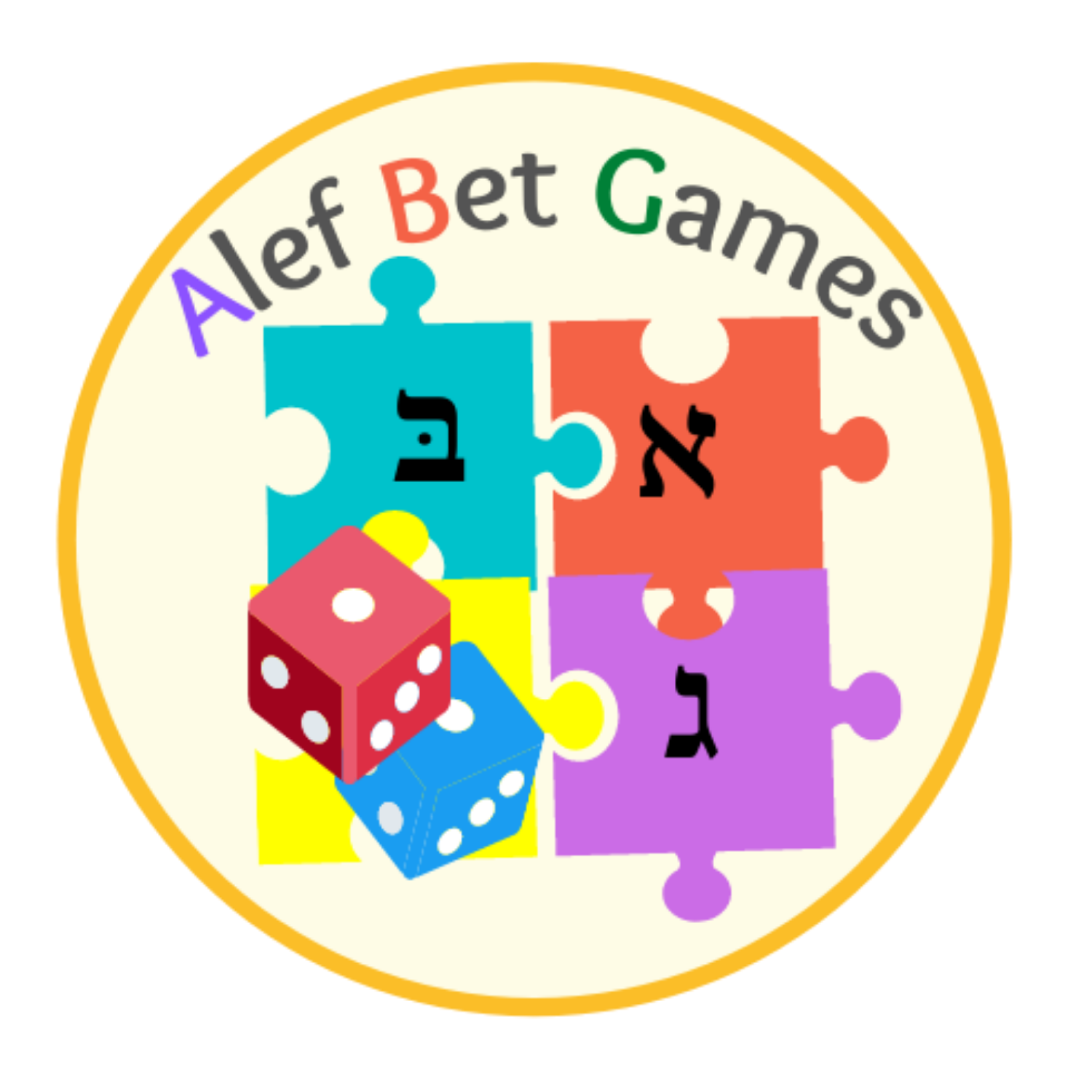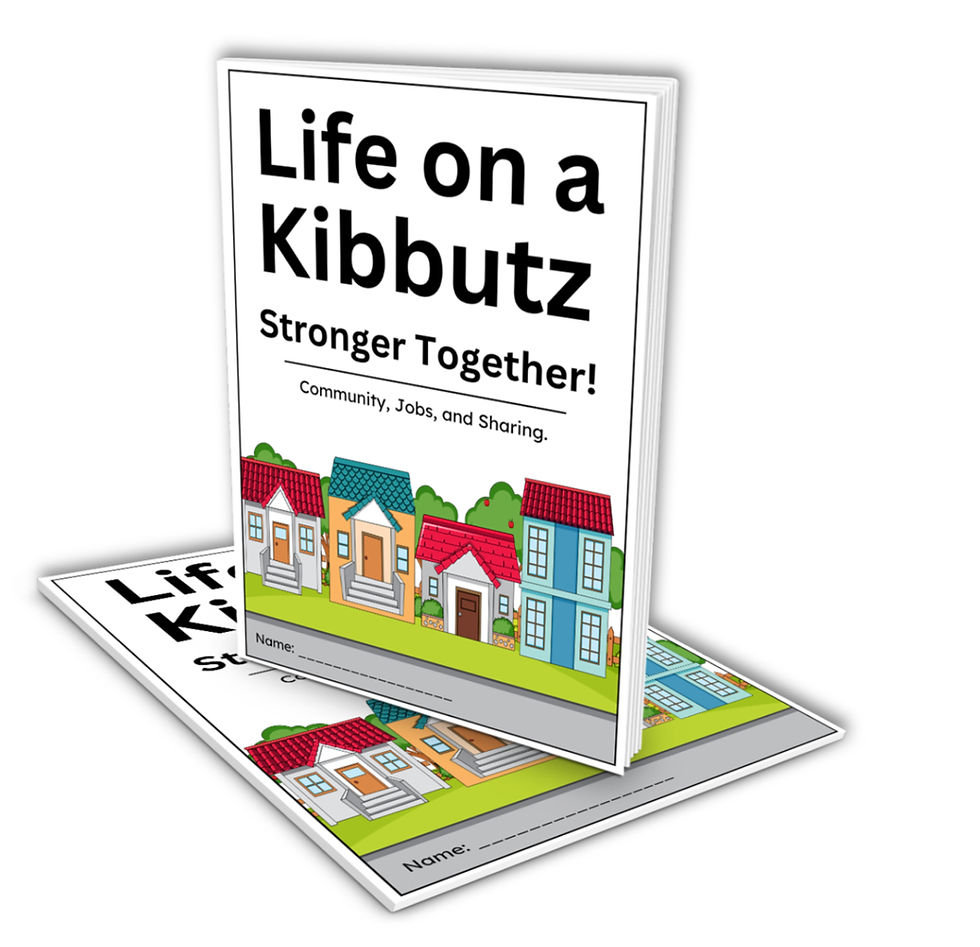Dynamic and Creative Ways to Bring Israel to Life in the Classroom
- Talia Shir

- Mar 2, 2024
- 4 min read
Updated: Nov 3, 2025
American support for Israel is crucial for the welfare of the Jewish state. However, a Gallup Poll from 2019 found that support for Israel among Americans was at its lowest point in a decade.
In light of this, it becomes imperative for parents and educators to instill in our children a deep understanding of Israel's significance. We need to communicate that the continued existence of the Jewish people hinges on prioritizing Israel. By engaging children in meaningful and stimulating ways, we can inspire them to become enthusiastic advocates for Israel and embrace their roles as future Zionists.
Here are some practical classroom activities for connecting children in the diaspora to the land of Israel.
Take a Mock Trip to Israel
Take your class on a Mock Trip to Israel for a day! Ask your students to rearrange their classroom furniture into an airplane with two pilots and two flight attendants leading the way. Students can role-play as flight attendants by checking passports, with pilots announcing take-off. Upon landing, they will begin their virtual tour.
Virtual tours offer an excellent way to transport children to Israel's iconic landmarks and historical sites. Utilize resources like Google Earth to create a virtual tour itinerary. Take them to the Western Wall in Jerusalem, float in the Dead Sea, explore the ancient city of Masada, or take a stroll through the vibrant streets of Tel Aviv.
Provide children with a passport template to personalize with their name, a self-portrait, and a space to reflect on the destinations, where they'll document their observations and illustrations in their passports.
The Kibbutz Movement
In the 15 years I spent teaching Israeli history to 5th graders, the kibbutz movement was perhaps the most captivating topic. Their favorite activity was designing a map of their dream kibbutz.
Begin by offering background information through YouTube videos documenting life on a kibbutz. Later, students can apply the knowledge they've gained to design a map of their ideal kibbutz. They'll be required to make decisions regarding various elements, such as the inclusion of children's houses, the types of businesses they would like to establish, and the range of recreational activities they envision for their kibbutz. This will allow them to exercise their creativity, critical thinking, and problem-solving skills as they imagine and shape their unique vision of an ideal community.
Finally, consider inviting a guest speaker who grew up on a kibbutz to share their experience.
From Pogroms to Pioneers
The Five Waves of Jewish Immigration to Palestine represents a crucial aspect of Jewish history and the establishment of the State of Israel. Exploring these historical waves can give students a deeper understanding of the diverse factors that contributed to the formation of modern Israel. Studying the aliyot helps students connect with Israel personally and historically. It allows them to appreciate the resilience and determination of those who sought to build a homeland, whether driven by religious or political reasons.
This lesson plan will have your students thinking critically about the five major waves of Jewish immigration from Europe to Palestine during the late 19th to early 20th centuries. By stepping into the roles of early immigrants, students gain a deeper, more personal understanding of this pivotal chapter in Israeli history.
Yom Ha'atzmaut Worksheets
These Yom Ha'atzmaut Worksheets will immerse learners with themes connected to the Land of Israel. Students will practice cracking the codes, completing word searches, a Mad Libs-themed activity, and more.


Create Pen Pal Connections
Establishing a pen pal program provides children with a wonderful opportunity to learn about Israel personally and meaningfully. Whether through exchanging letters, emails, or video chats, connecting with Israeli children allows children in the diaspora to gain unique insights into growing up in the Jewish homeland.
This first-hand interaction enables them to explore the similarities and differences between their own lives and those of their Israeli pen pals. Discussions about daily routines, traditions, hobbies, and aspirations provide a deeper understanding of Israeli culture. Through these exchanges, children may discover surprising aspects, such as Sunday being a school day or how secular Israeli children experience Yom Kippur in Tel Aviv.
Moreover, the pen pal program can inspire a genuine curiosity about Israel's geography and cultural heritage. By creating human connections through a pen pal program, they'll have the opportunity to learn about what it's like to grow up in the Jewish homeland and perhaps make a new friend for life!
Israeli Culture Day

Promote cultural exchange activities that give children a firsthand experience of Israeli traditions and customs. For example, children can learn how to prepare delicious dishes such as hummus or an Israeli salad, using fresh ingredients and simple techniques.
Plan a Hebrew movie night by screening an Israeli original or American motion picture in Hebrew! Set up a concession stand with traditional Israeli snacks like Bissli or Apropo.
They can also enjoy listening to Israeli songs and learning about their meanings and origins. These activities are entertaining and interactive, allowing children to actively engage with Israeli culture and deepen their connection to the country.
Teaching children about Israel cultivates their love, understanding, and support for the land and people. By adopting engaging and immersive teaching approaches, such as mock trips, pen pal programs, exploring the kibbutz movement, and Israeli culture days, we empower our children to become ambassadors for Israel. We can nurture a profound and unbreakable love for Israel, ensuring a new generation of passionate Zionists.


Product Title
16 px collapsible text is perfect for longer content like paragraphs and descriptions. It’s a great way to give people more information while keeping your layout clean. Link your text to anything, including an external website or a different page. You can set your text box to expand and collapse when people click, so they can read more or less info.
$320

Product Title
16 px collapsible text is perfect for longer content like paragraphs and descriptions. It’s a great way to give people more information while keeping your layout clean. Link your text to anything, including an external website or a different page. You can set your text box to expand and collapse when people click, so they can read more or less info.
$900

Product Title
16 px collapsible text is perfect for longer content like paragraphs and descriptions. It’s a great way to give people more information while keeping your layout clean. Link your text to anything, including an external website or a different page. You can set your text box to expand and collapse when people click, so they can read more or less info.
$560





_edited.png)







Comments